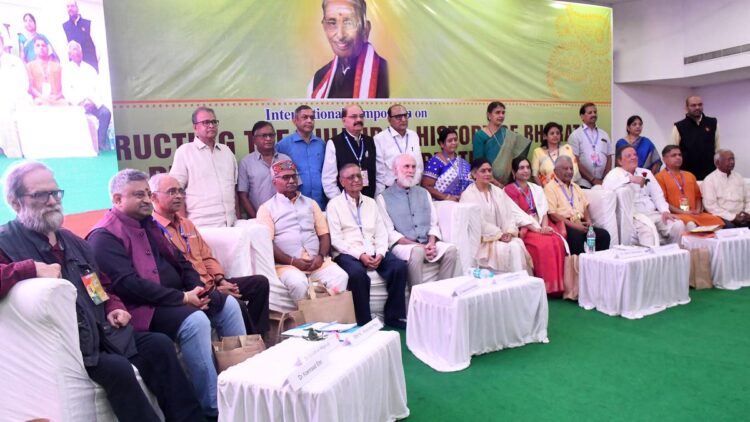Luminaries from various fields converged in Visakhapatnam for a symposium aimed at reconstructing India’s cultural history and revitalising its identity on the global stage. Organised by the Sivananda Supatha Foundation, the international symposium titled ‘Reconstructing the Cultural History of Bharat’ featured esteemed speakers including Padma Bhushan awardee Vamadeva Sastry (David Frawley) and historian Y. Sudershan Rao. The event delved deep into India’s rich cultural tapestry, emphasising its potential as a ‘Viswa Guru’ or world teacher.
The symposium underscored the need to transcend India’s identity as a mere nation-state and embrace its role as a thriving civilization with universal values. Vamadeva Sastry set the tone by envisioning India as a beacon of wisdom and enlightenment for the world, emphasising the importance of acknowledging and celebrating its cultural heritage. He emphasised, “Recognising India’s role as a ‘Viswa Guru’ transcends national pride; it’s about acknowledging the universal values and wisdom our civilization offers.” This sentiment infused the day’s discussions with a quest to unveil Bharat’s rich cultural tapestry.
A key focus of the symposium was addressing historical distortions perpetuated by European historians during the colonial era. Y. Sudershan Rao emphasised the imperative to correct these distortions, stating, “It’s imperative that we correct the historical narrative to reflect the true essence of Bharat’s civilization. Our history is not a footnote in the annals of Western history but a vibrant chapter that shaped human civilization.” The symposium not only tackled these historical inaccuracies but also emphasised the significance of safeguarding and promoting Indian cultural heritage amidst globalisation.
Participants also discussed concrete steps for preserving and promoting India’s cultural history in the face of globalisation. Speakers like Balmukund Pandey and R. Raghavendran highlighted the potential of technology and modern methodologies in documenting and disseminating cultural narratives effectively. Moreover, the symposium emphasised the crucial role of education in nurturing a deeper understanding and appreciation of Sanatana Dharma among the youth, ensuring the continuity of India’s cultural identity.
The symposium concluded with a hopeful discourse on India’s ability to reclaim its position as a global guru, with its cultural heritage offering invaluable lessons for the world. Participants, comprising scholars, historians, and educators, expressed a palpable sense of responsibility towards the monumental task of reconstructing and preserving India’s cultural history.
While the symposium may have concluded, it marked the beginning of a journey towards reviving and celebrating Bharat’s glorious past. As India looks towards the future, the symposium served as a reminder of the importance of cultural preservation in shaping its national identity and pride.
















Comments